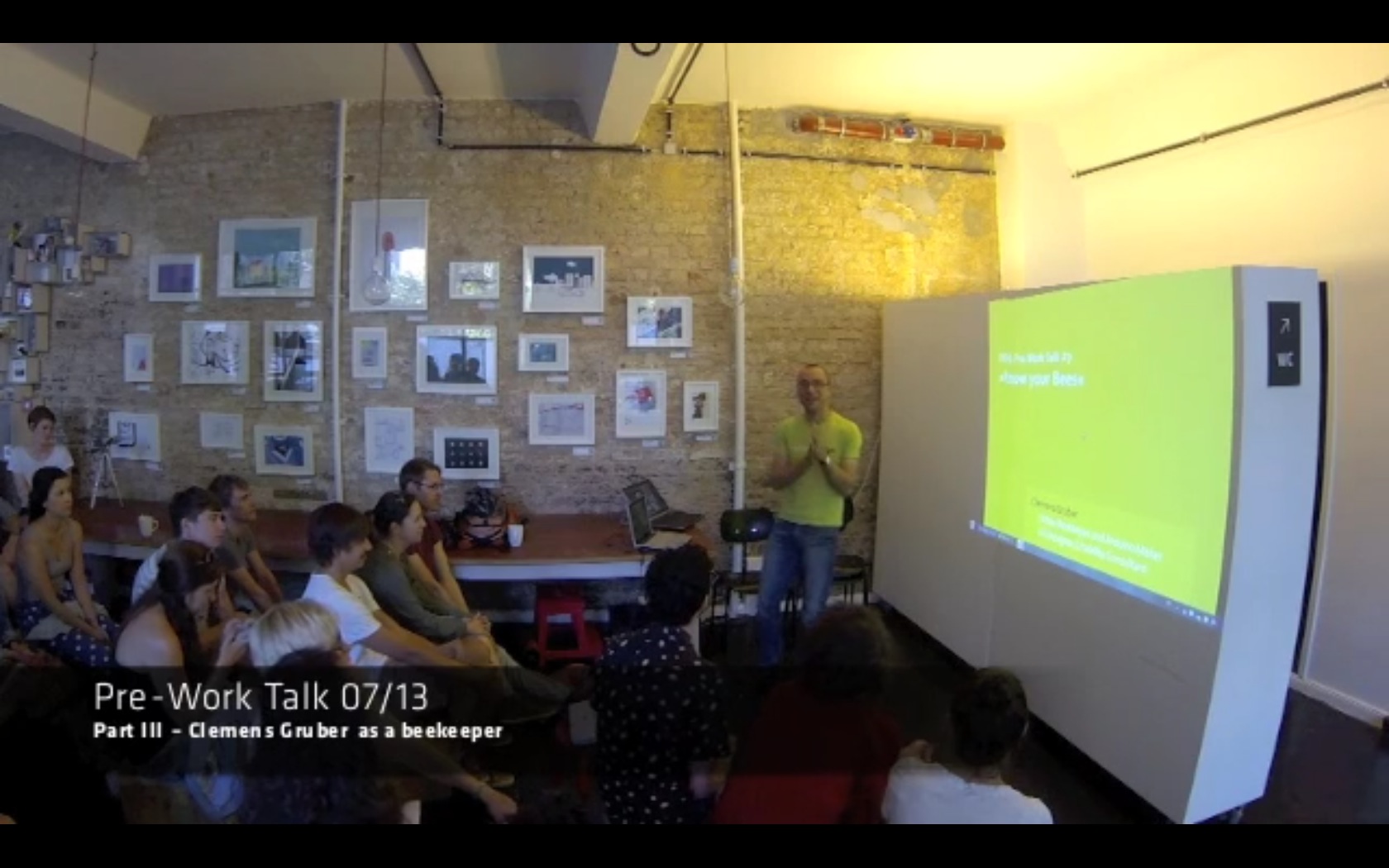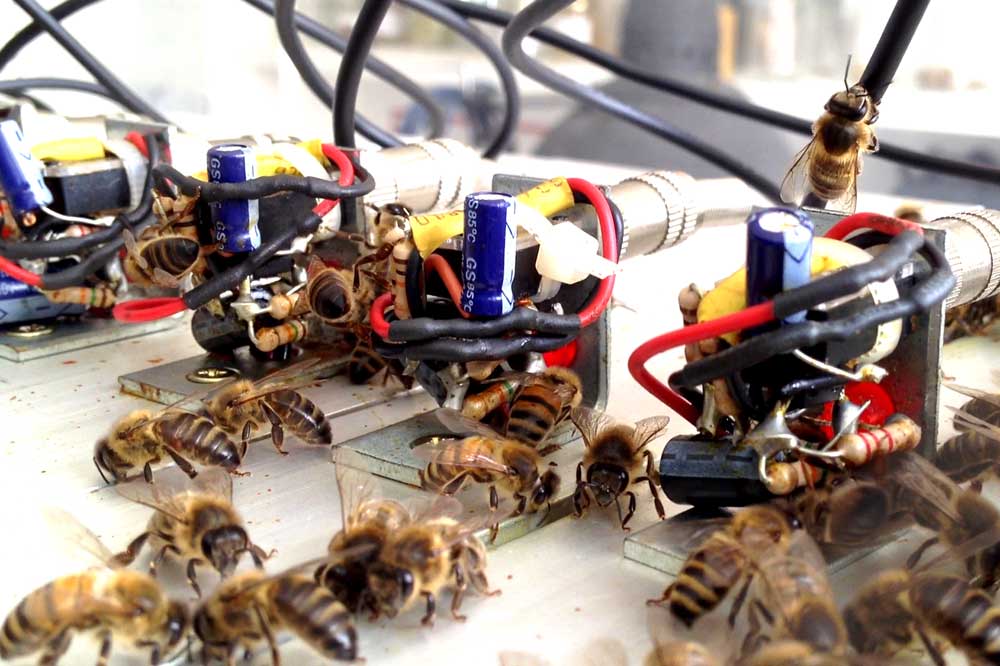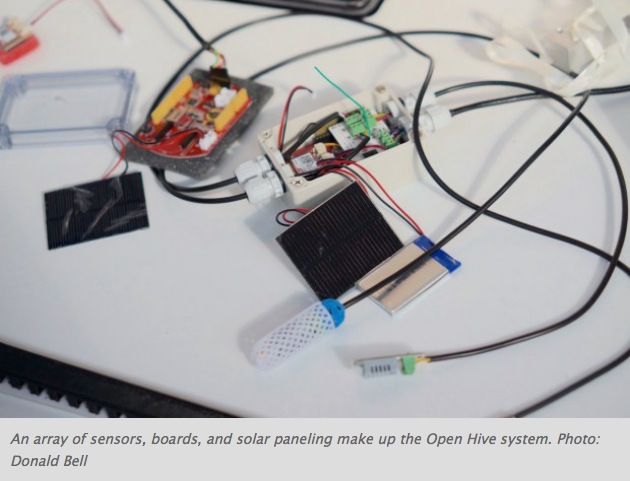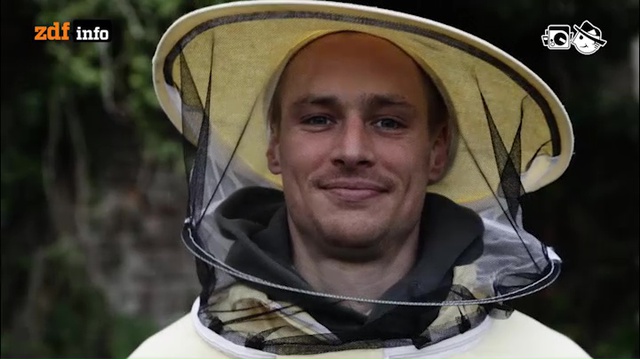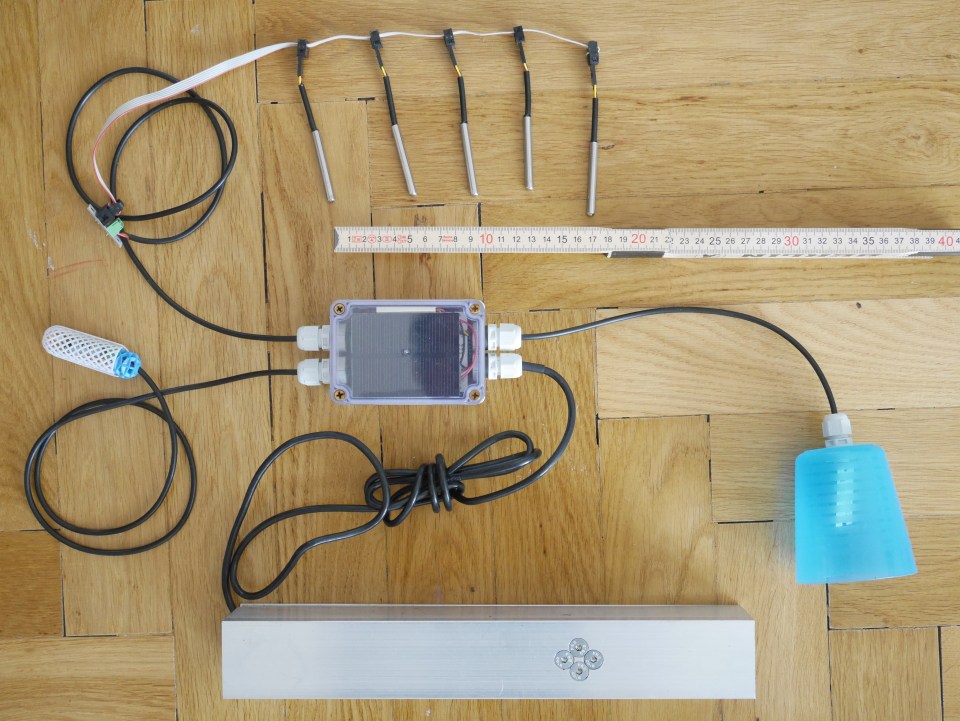Gallery of hardware and software components, diagrams and features
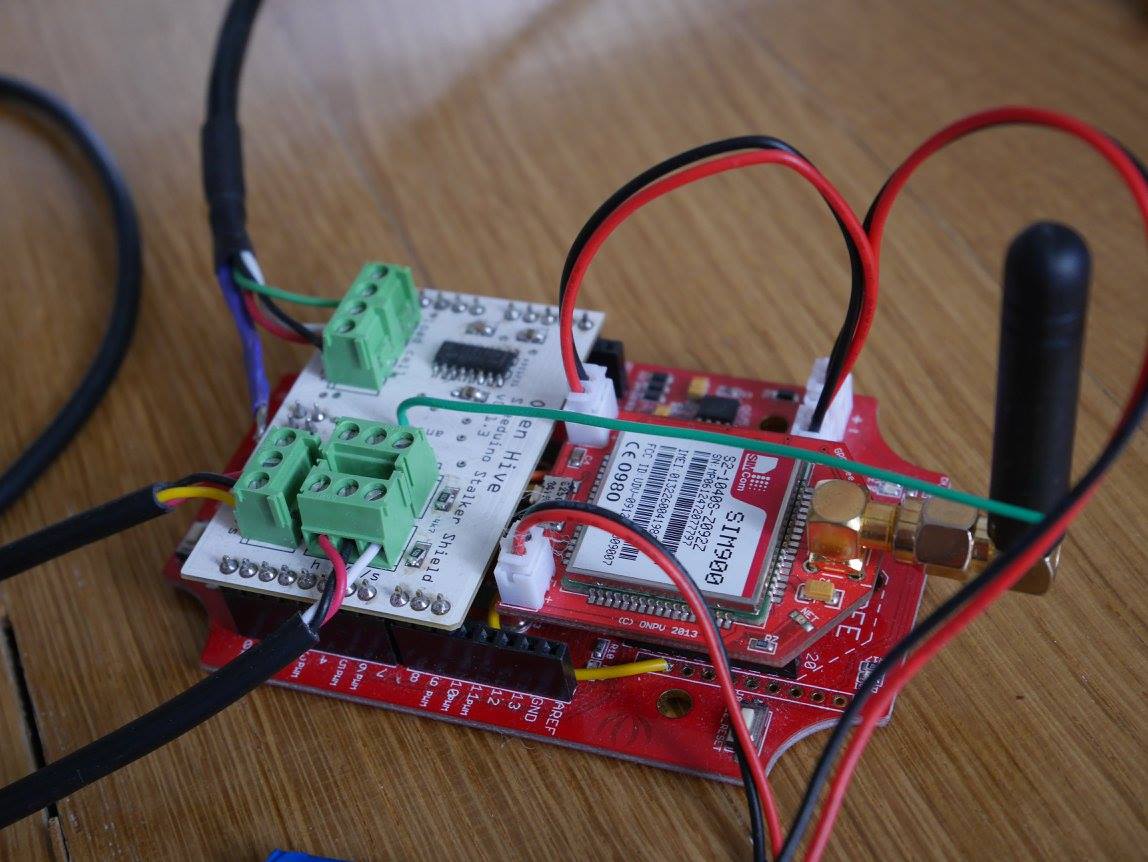
Open Hive Seeeduino Stalker
with GPRSBee module for GSM telemetry and custom connector shield.
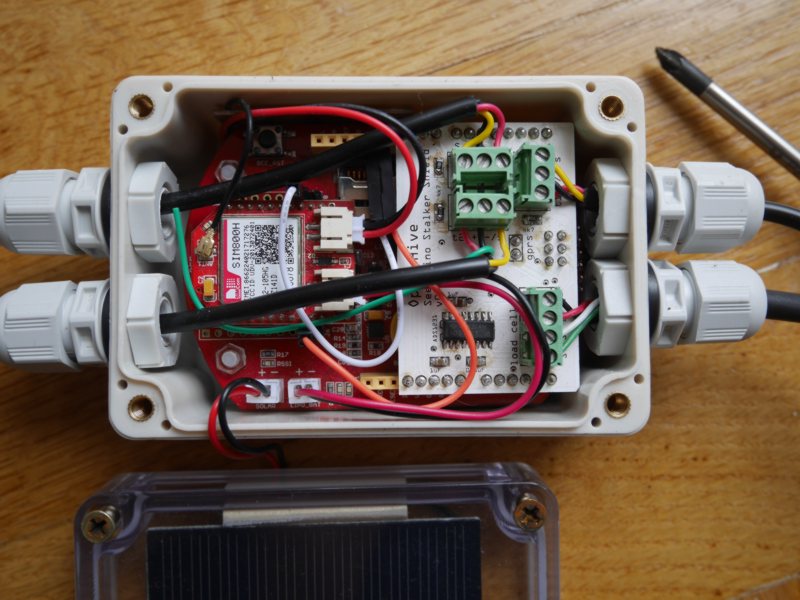
Open Hive Box
Open Hive Seeeduino Stalker, boxed.
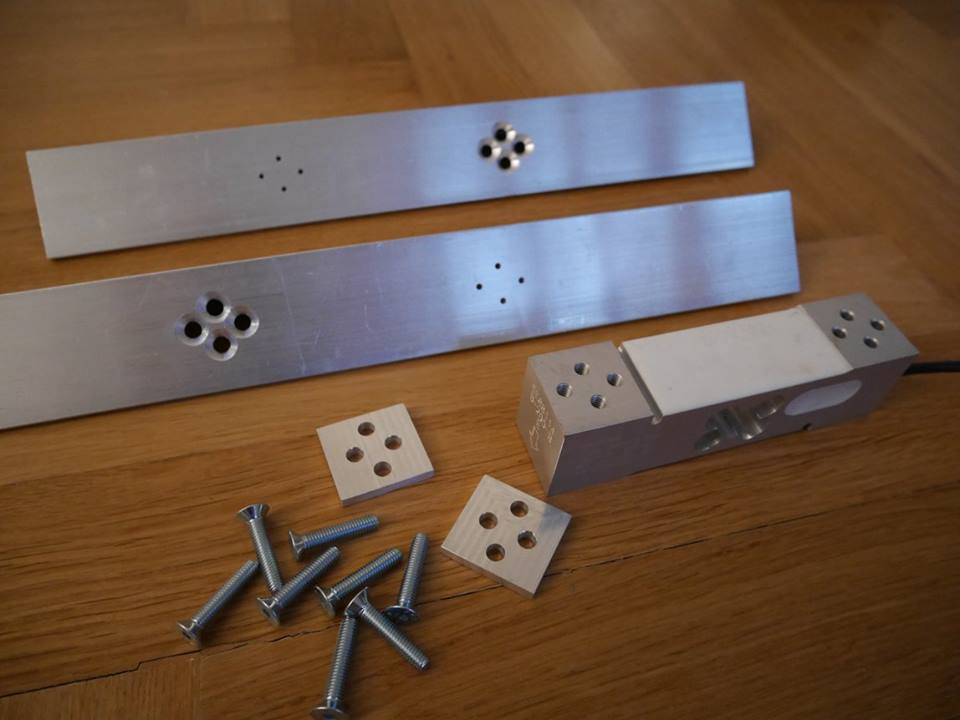
Open Hive Scale Parts
Asymmetric-design hive scale with Bosche H30A load cell, unassembled.
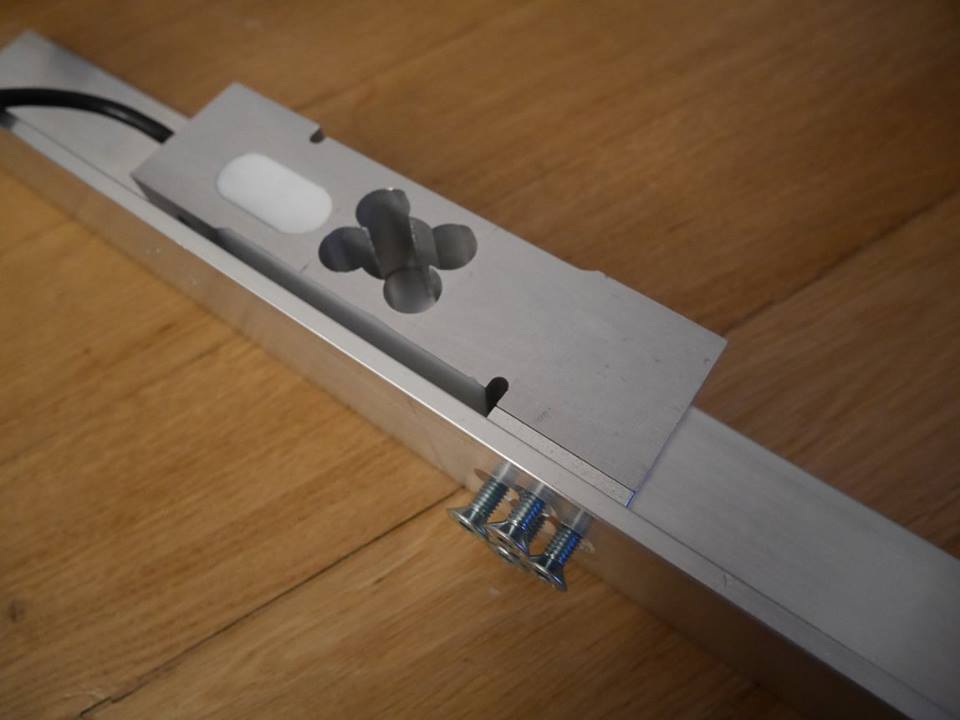
Open Hive Scale
Asymmetric-design hive scale with Bosche H30A load cell, assembled.
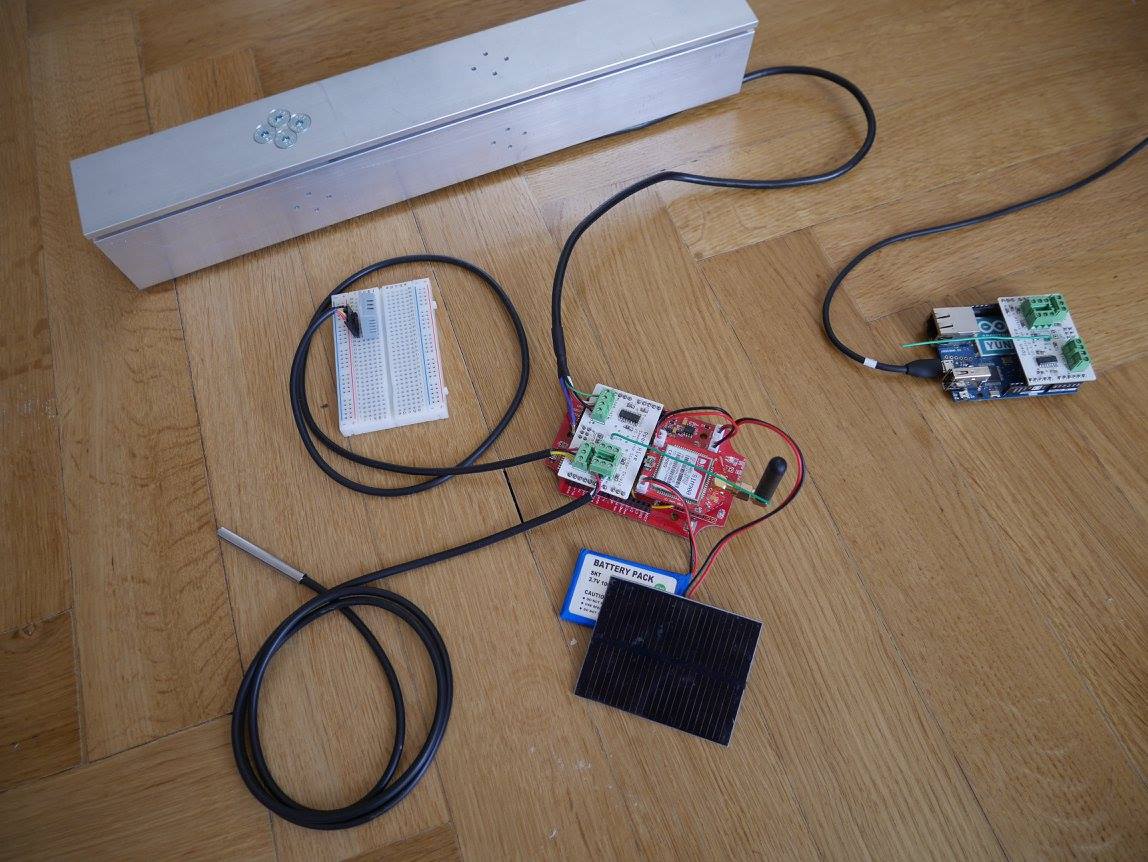
Open Hive Kit
Solar-powered sensor node.
GPRSbee module and custom connector shield.
Asymmetric-design hive scale with Bosche H30A load cell.
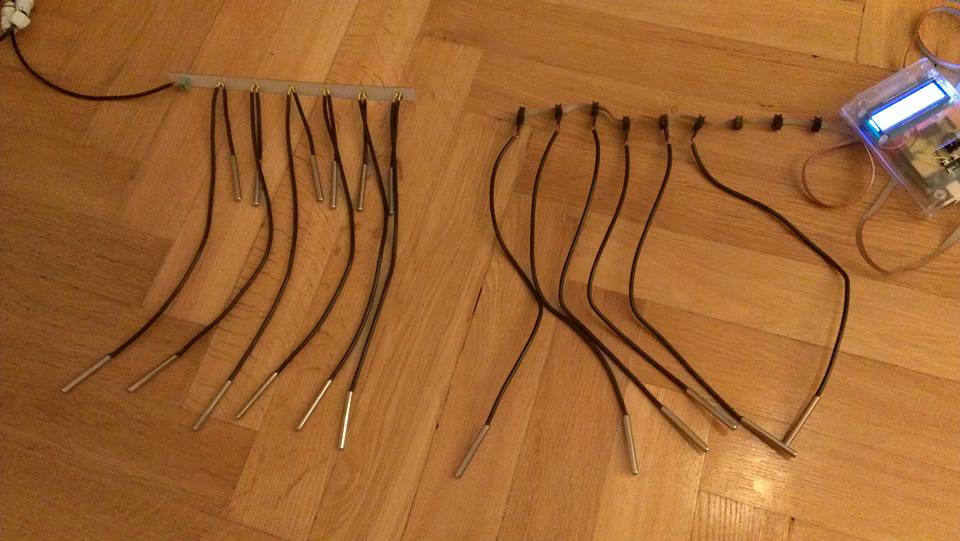
Open Hive Temperature Array
Temperature array for multi-point temperature measurements.
Two different implementations: Left with PCB, right with ribbon cable.
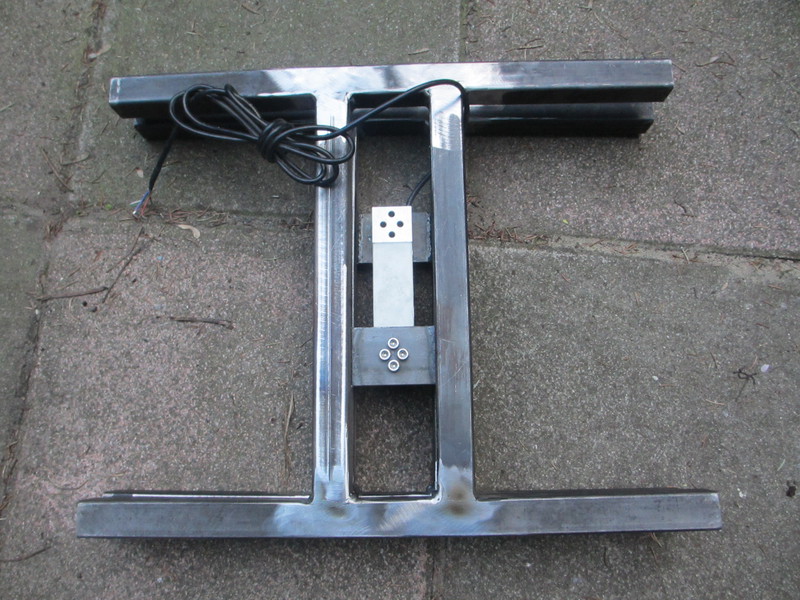
Beutenkarl Scale Frame
Steel-made, symmetric-design scale frame
with Bosche H30A load cell, assembled.
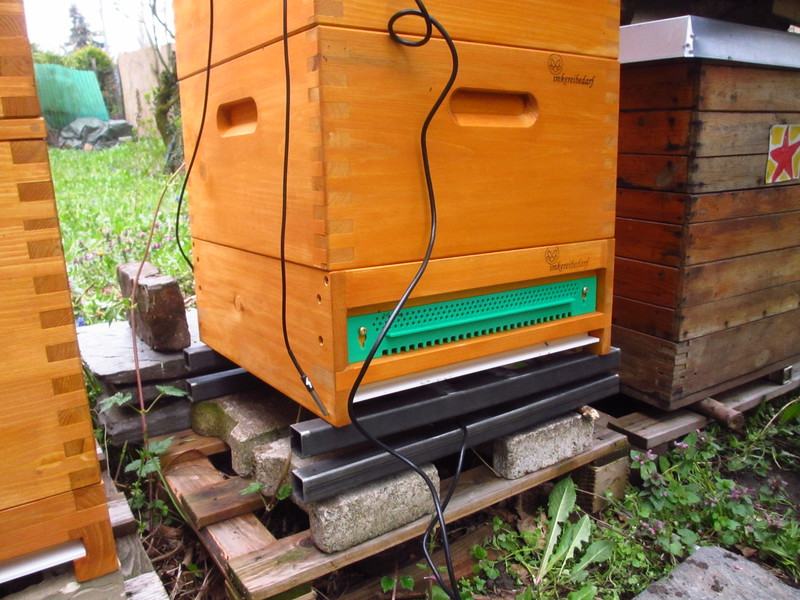
Beutenkarl Scale Frame
Scale frame at the »LabHive One« beehive, mounted.
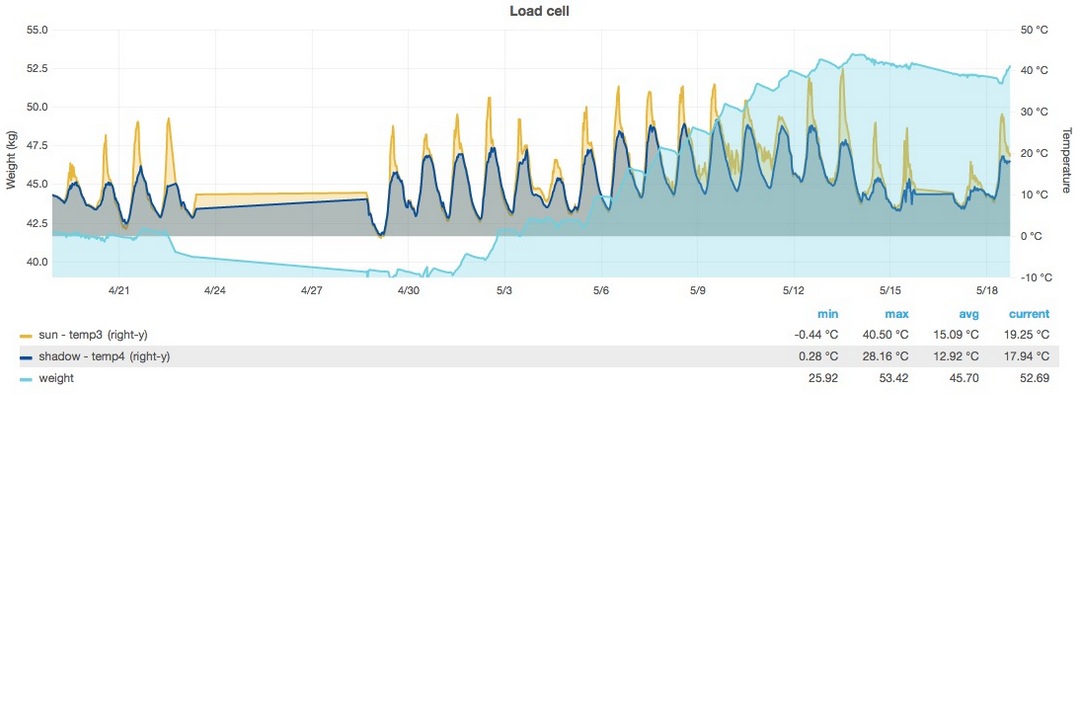
Harvesting
Harvesting period April/May 2016 recorded from »LabHive One« and displayed in Grafana.
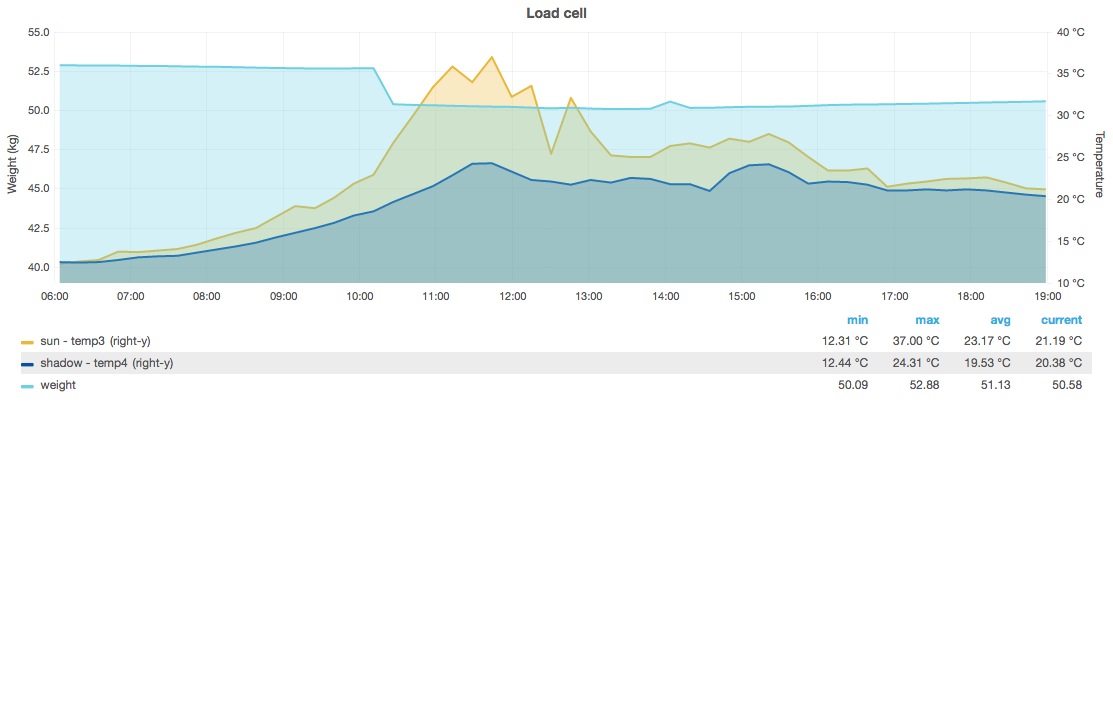
Schwarmalarm
A »Schwarmalarm« event on May 20, 2016 from »LabHive One«, displayed in Grafana.
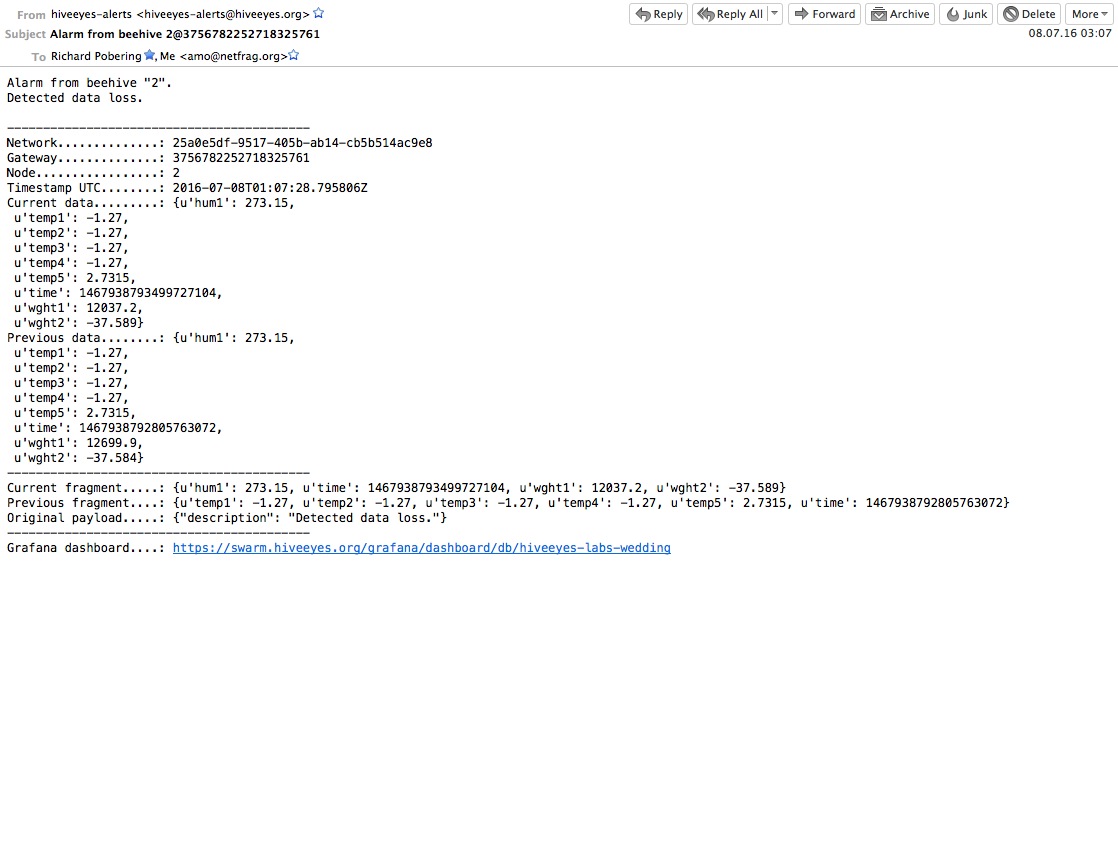
Data-loss notification
A data-loss event notification email was triggered by »mqttwarn«.
The reason was connection-loss on the gateway machine.
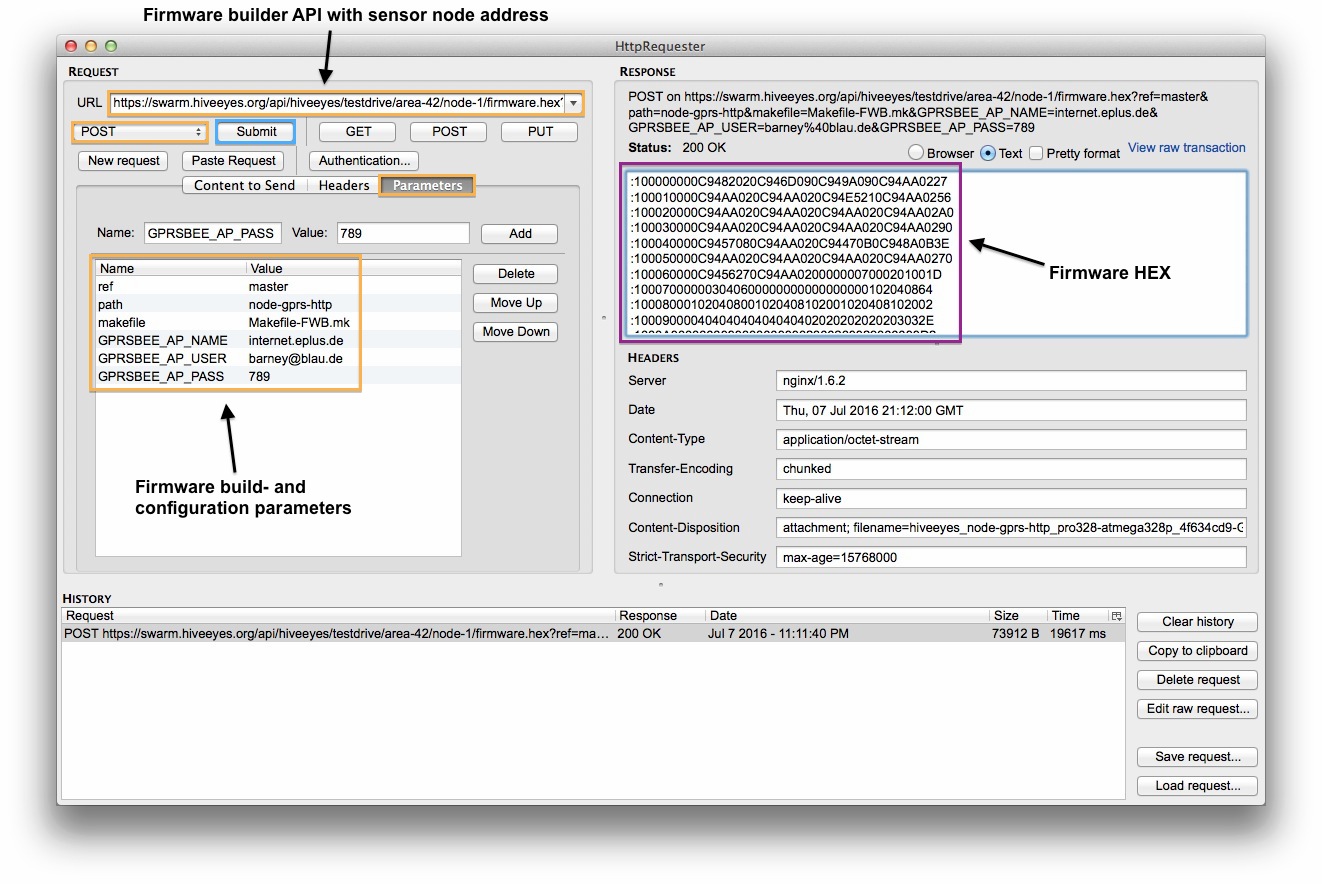
Firmware builder
Acquire firmware with flexible build- and configuration parameters without having a build chain installed.

Radio communication
RF69 and RF95 radio communication using BERadio protocol with Bencode serialization.

WAN communication
MQTT- and HTTP-based data acquisition.
InfluxDB storage and Grafana visualization.
Event notifications through mqttwarn.
